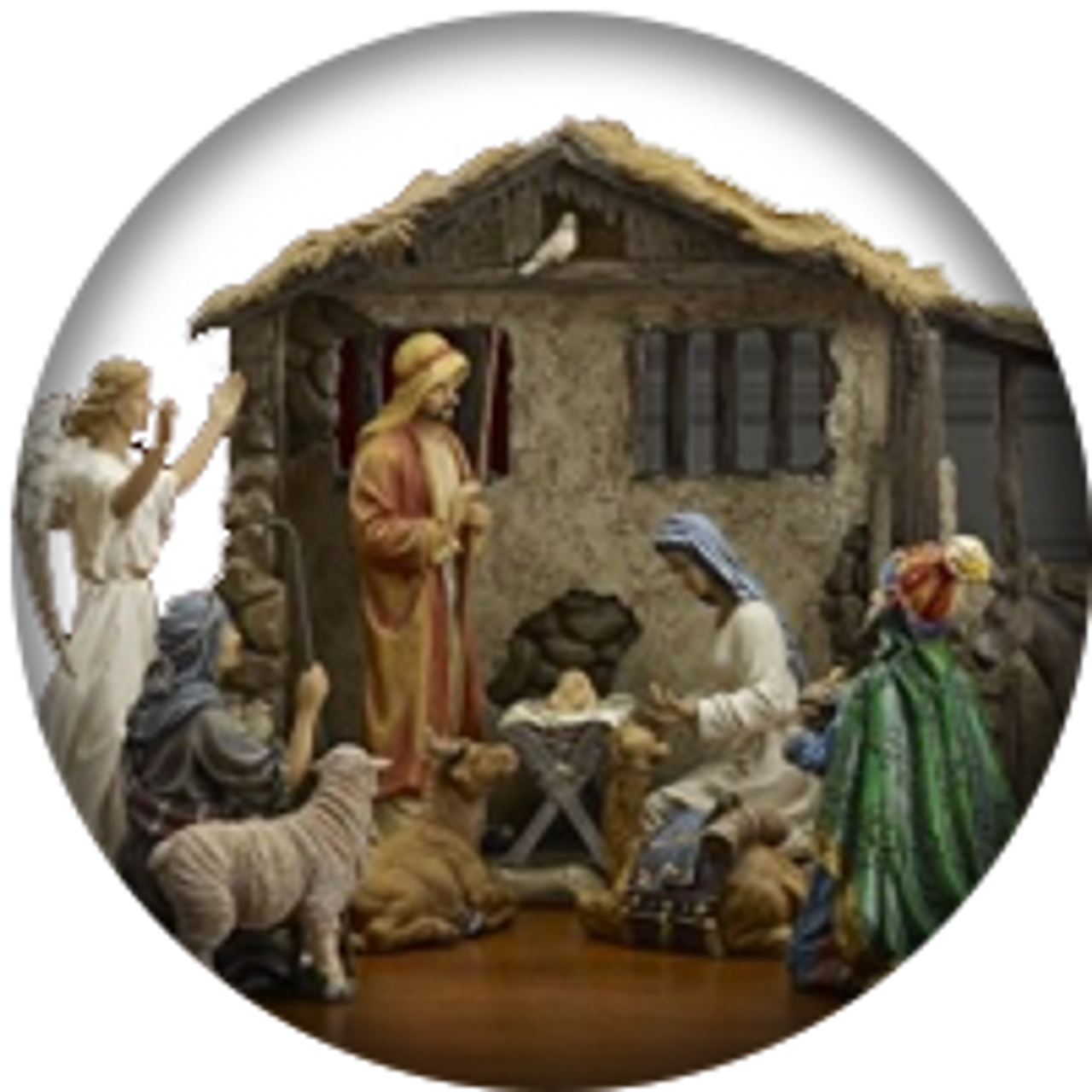FROM PHARISEE TO FOLLOWER SAINT PAUL'S CONVERSION
Kathy Boh on 24th Jan 2019
FROM PHARISEE TO FOLLOWER
SAINT PAUL'S CONVERSION
JANUARY 25, 2019
BACKGROUND BIOGRAPHY
Saul was born to strict Jewish parents, of the tribe of Benjamin, in Tarsus, a seaport town and the capital of Cilicia (which is now southeastern Turkey). The citizens of Tarsus had been favored by Emperor Augustus with many entitlements and birthrights due to their strong support of Rome and its Caesars.
At a very young age, he was sent to Jerusalem to study under Gamaliel, a highly respected teacher of the law [Acts 22:3]. His birth seems to parallel the general time when Jesus was born, with Paul dying around his mid-sixties. It is believed that he died in Rome under Emperor Nero’s persecutions of Christians, before 70 A.D.
PAUL'S RELIGIOUS FERVOR
Paul's history, as shown in Acts, describes the intensity of his religious fervor in applying the law. He became the Christians’ most feared adversary, in hunting them down and even dragging them out of their homes. His plan, typically, was to put them in chains.
He described himself and his persecutory behaviors in Acts 22 and 26. It was Saul who attended the stoning of Stephen, and it was at his feet that the murderers lay their cloaks. But something happened to him, and in him. A remarkable change took place while Saul was near the end of a journey to Damascus, intending to do there what he had done to Christians in and around Jerusalem. He had an encounter with Jesus, Himself.
NEW LIFE
Paul’s conversion is mentioned several times in the New Testament. It can be found in Acts 9:1-30. Paul then retells the story to fellow Jews after being attacked in Acts 21:39-22:21… and again to King Agrippa in Acts 26:4-28.1 In his own words, he reports,
“…About noon, a great light from the sky suddenly shone around me. I fell to the ground and heard a voice saying to me, ’Saul, Saul, why are you persecuting me?’… And he said to me, ’I am Jesus, the Nazorean whom you are persecuting’… Since I could see nothing… I was led by hand by my companions and entered Damascus.” In Damascus, God spoke to a Christian named Ananias, “a devout Jew and devout observer of the law, and highly spoken of by all the Jews who lived there…”
He [Ananias] was initially afraid of Saul [Acts 9:11-16]. But God reassured him. God told him where to find Saul, and God confirmed to him that Saul was God’s “chosen instrument” [Acts 9:13-15]. When Ananias went to see Saul, they spoke, and he then laid hands on Saul and prayed, and Saul regained his sight. 2 Following that, Paul was baptized and filled with the Holy Spirit.
Paul began his long and well documented journeys, evangelizing much of the area around the Mediterranean Sea, as he passionately pursued his calling to preach the good news to the Gentiles.
PHARISEE'S RELIGION VS. GOD ENCOUNTER
Paul had always sought to do right, and to uphold the law. How could he have gone so far amiss… and “fight against the Holy Spirit”? 3 …What, then, caused him to seek and bring so much havoc and danger to the early Christians? Before we answer this question, let's begin with another one:
What changed, starting on that Damascus road? Saul’s experience was highly personal and dramatic, but there is much information we can learn about who he was as a member of the sect called, “Pharisees”. Both his personal perspectives and his religious-sect-environment bear examination to understand Saul’s change.
Personally, in his encounter with the voice of God, he started to know just how real Jesus is, and came to understand that what God was asking him in life was quite different from his own Pharisaical agenda. It was the Person of God—Jesus, Himself—that became his focus.
The law was no longer his taskmaster; his encounter with Jesus, Himself, in such mercy, truth and kindness led to a new understanding of his Lord.
He came to know this caring Shepherd as the truly meek and loving Savior—
Who did not at all treat Saul as he had been handling the Christians whom he had tormented.
Instead, Jesus spoke directly, truthfully, but kindly to Paul.
He brought him to trustworthy friends and later healed him. He gave him a great calling, and trusted him with it. That same Jesus demonstrated to Saul what he had said not many years before: that His “yoke is easy and [His] burden, light”.
God’s heart took hold of Saul’s heart, and his focus became good news, rather than judgment, accusation and persecution.
It was good news that Saul, himself, first embraced—exactly Who Jesus is, what He has done for us, and all that He desires to give us as we follow Him. It is clear from Paul’s writings that he deeply learned these things as he traveled, walked with God, and listened to the Holy Spirit.
PHARISEES
Paul said in Acts 22:20 “And when the blood of …Stephen was being shed, I myself stood by giving my approval and keeping guard over the cloaks of his murderers.”
Stephen had spoken a long discourse [Acts chapter 7] immediately before he was stoned to death, as the first Christian martyr. While speaking, he showed his knowledge of Jewish law and salvation history, and he ended with,
“You stiff-necked people, uncircumcised in heart and ears, you always oppose the Holy Spirit…” 3It was Jesus who deeply recognized [knowing, as scripture shows in both New and Old Testaments] that...
God looks upon the heart, and He sees
deeply beyond meticulous outward
religious behaviors that seek to become a
substitute for faithful and truly humble
hearts.
Stephen was pointing out this fact using references to the law’s emphasis on circumcision, and quoting the term (“stiff-necked”) frequently used by Old Testament prophets regarding stubborn, rebellious attitudes of the heart and mind in God’s own people. 3
Jesus, Stephen, and Paul each emphasized that one could be extremely thorough, tenacious and zealous in obeying the letter of the law, and still oppose the Holy Spirit and oppose God’s heart, will, and kingdom desires.
Religiosity had to go beyond the scrupulous observance of the law in its measurable aspects.
True love of God had to seek to sincerely love Him. That means each person must face and challenge his/her own heart with its desires, motives, loves, and preferences...
When a "scholar of the law stood up to test" Jesus, He answered, "'You shall love the Lord your God with all your heart, and with all your soul, and with all your strength, and with all your mind; and your neighbor as yourself." [Luke 10:25-27]
THE HEART VS. EXTERNAL BEHAVIORS AND PRACTICES
Focusing on heart choices is quite different than focusing on outward behaviors that can be measured and observed. Good and holy outward behaviors are meant to be the fruit of the Holy Spirit’s work in us. They result from the heart being purified and softened and attentive toward the Lord and His direction.
We hear talk of people being “transparent” and “integrated” in personality or personhood. This happens when what’s inside our minds and hearts matches what is going on externally—not just as “games”, manipulations, or disguises, but in practicing what one preaches [Mt. 23:3]
Jesus, on the other hand, was “gentle and humble of heart”, but He railed against the Pharisees. They were singled out as objects of extreme criticism from the One Who IS Love, Himself. What could have fired up such a just cause?
He said they acted as “blind guides, who strain out the gnat and swallow the camel… cleaning the outside of the cup… but inside they are full of plunder and self-indulgence… like whitewashed tombs, which appear beautiful… but inside are full of…dead men’s bones and every kind of filth…” [Matt. 23]
Similarly, Paul called the high priest and his attendants “you whitewashed wall” [Acts 23:3]. Jesus said in the Sermon on the Mount: “I tell you, unless your righteousness surpasses that of the Scribes and Pharisees, you will not enter into the kingdom of heaven.” [Mt.5:20] That is a very pointed and strong statement to make about His people's religious leaders.
JESUS AND PHARISEES
The anger that Jesus displayed toward the Pharisees was a righteous anger that came deeply from His “Good Shepherd” heart… And the Father’s heart… and His “mother hen” heart, exemplified in his cry over Jerusalem. “Jerusalem, Jerusalem, you who kill the prophets and stone those sent to you, how many times I yearned to gather your children together, as a hen gathers her young under her wings, but you were unwilling!” [Mt. 23:37].
Jesus had previously told his disciples, “Look out, and beware the leaven of the Pharisees and Sadducees.” They finally understood that He ”was not telling them to beware of the leaven of bread [literally], but of the teaching of the Pharisees and Sadducees.” [Mt.16:6, 12]
Jesus already saw the people as His body, His flock. It grieved Him deeply that the “leaven” of attitudes, focuses, example and practices of the Pharisees, Scribes, and Sadducees was infecting the bread that was His body, and being kneaded into the loaf like yeast.
Pharisaical behaviors and perspectives were being both caught and taught, though unseen and unnoticed by the people Jesus came to save.
The “rising” aspect of the leaven would foster a rise in pride, arrogance and result in “lording it over” others (i.e., “places of honor”, titles, etc.) instead of what pleases God to see: deference, meekness, and humble service [Mt.23:6-12].
Their insidious “leaven” would foster self-righteous actions aimed at feeling as if good were being done, and seen as good in the eyes of others, rather than quietly done to please the Father in the Father’s secret sight... and truly acting in love toward God and toward others.
Many, many things about the Pharisees grieved Jesus greatly, and He expounds on them in Matthew chapter 13.
They “lock the kingdom of heaven before human beings… [They] do not enter [themselves], nor allow entrance to those trying to enter”… He plainly called them “hypocrites” and “blind guides”, who “on the outside appear righteous, butinside…are filled with hypocrisy and evildoing.” [Mt. 23:13,27,28]
PAUL AS A PHARISEE
Paul openly admitted that he was “a Pharisee and the son of Pharisees…” [Acts 23:6]. But he became radically converted. He allowed (what he later referred to as) God’s mercy to work core transformation in him. And in agreeing, deep in his heart, to immense changes, he (having formerly persecuted those who loved Jesus) knew those choices would cost him dearly.
This dedicated Pharisee had been vehemently inflamed by his dedication to the law’s fastidious demand, but he made a remarkable change. Jesus understood his religious fervor but also deeply saw his misplaced focus.
We see that God’s love and mercy superseded the power of the law, alone. The extreme observances of Phariseeism were off-target from the focus, the heart, and the purposes of God. It took a flood of grace to change like Paul did… and it took God's help along the way. Paul—throughout his writings—continually referred to his own weakness and God’s strength, always giving God the glory… and thanking God for His mercy. Paul greatly cooperated in his response to the Lord.
HOPE FOR CHANGE
We can gain many insights from the story of Paul’s conversion.
But, again, first, some questions: How many of these attitudes and behaviors exist--even, abound--today? If they are present in religious lives around us, how much are they affecting our own attitudes and practices? What, exactly, is the direction and focus of our own hearts--that God sees clearly and we can dare to examine. (He will help us by shedding the light of His mercy and truth.)
One primary truth is this: People can change. Stephen’s prayer that flowed from his good and healthy ‘heart condition’ helped pave the way for Saul’s conversion… contributing to the “blinding light” renewal-call of Paul from Jesus, Himself.
Stephen had prayed for his persecutors 4 and he forgave them, as he was dying, just as Jesus did. Stephen said, "Lord, do not hold this sin against them." [Acts 7:60] God, indeed, intervened in Saul's life.
There is immense power in forgiveness and in intercessory prayer for others. In fact, when we do either, we are both cooperating with and actually doing the work of Christ Himself, as His hand extended.
Jesus is the “high priest” who is “ever-interceding” for us. Jesus cried out to His Father from the cross, “Father, forgive them… They know not what they do…” [In other words, they do not realize what they are doing.] It was the Jewish high priest and the Sanhedrin who had long been pushing for the elimination of Jesus from their midst.
That same pharisaical religious spirit behind the consuming desire to see Jesus killed became the driving force behind Saul and his passionate and violent persecution of Christ’s followers.
To express this another way: A man so steeped in the highest level of Jewish-law-intensive-fastidiousness (the Pharisee) made a 180 degree turnaround… rather suddenly, and with all his heart.
To express an earlier thought in more detail: We may assume that he "counted the cost" of such a radical reversal—especially since he, himself had had every persecutory perspective and connection with the top Jewish leaders in Jerusalem. There can be little doubt that he knew the probable consequences of his choices.
WHAT ABOUT US?
Change like this is available to each of us… What will we realize the need of? Again: how far are we willing to go to look into our own hearts, and see what God sees?
The same diligence in being pharisaical can be re-routed by God, Himself in enabling us to become true lovers of God from deep within our hearts. God knows what is going on; He sees what is real; and He, alone, can enable us to change—as we seek Him (“Ask.. seek… knock… “[Luke 11:9-13] "and keep on asking…" [amplified translation].
Jesus, our High Priest, is already, still, and “ever” interceding for each of us, yet today. And we have the same access to [His] promised Holy Spirit, who can enable us to see and do the right thing, at the right time, with the right heart.
No one is enthusiastic to respond “Yes!” to the statement: “Raise your hand if you are a Pharisee!” But doing so may help us better understand our "heart condition". It may bear some very good fruit in our lives to look at some of these scriptures again, and prayerfully let the Lord examine us... reveal to us our own "heart condition".
We can depend on the fact that He will be both kind and merciful—and give every grace and blessing as we do so. We may even find, as in Paul’s life, that the “fruit” of that choice becomes immeasurable in outcome… in ever widening ripples of fruitful blessings, grace, and glory to the Lord Himself. May we each seek and accept the courage God gives to do so.
REFERENCES
1 It may appear to be (but not necessarily be) true that the different accounts may contradict each other as to whether those with Saul heard or did not hear Jesus’ voice. [Act 9:7 and 22:9] The reason for this is that the English words, in translation are not like the Greek words, which make a distinction between hearing a sound (Jesus’ voice) and understanding it (realizing what was being said).
2 footnote in the New American Bible (1986 edition) to Acts 13:9 " 'Saul, also known as Paul': There is no reason to believe that his name was changed from Saul to Paul upon his conversion. The use of a double name is well attested (cf. 1:23, Joseph Justus; 12:12, 25, John Mark)."
3 cross reference
4 St. Austin said, “If Stephen had not prayed, the church would never have had St. Paul”. Quoted from:
http://www.ewtn.com/saintsHoly/saints/C/conversionofstpaul.asp#ixzz3PUW9waI
LOOK FOR PART IV OF "KINGS AND KINGDOMS" COMING THIS WEEK.










